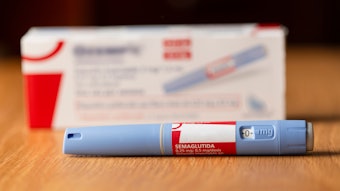A study published in Plastic and Reconstructive Surgery (December 2016) compared AeroForm—a remote controlled, needle-free CO2-based expander—to saline tissue expanders.
The researchers randomized 150 women undergoing two-stage breast reconstruction at 17 U.S. sites. Subjects performed expansion in 10cc increments, up to 30cc per day of CO2. Physicians treated the control arm with periodic bolus injections of saline. Safety endpoints, expansion and reconstruction times, pain and satisfaction were assessed.
Ninety-eight women were treated with CO2 expanders (n = 168) and 52 with saline expanders (n = 88). The treatment success rate (all breasts exchanged successfully excluding non-device-related failures) was 96.1% for CO2 and 98.8% for saline. Median time to full expansion and completion of the second-stage operation was 21.0 and 108.5 days (CO2) versus 46.0 and 136.5 days (saline), with a similar rate of overall complications. The CO2 expander was rated high for ease of use by both patients (98%) and physicians (90%).
The researchers concluded that a CO2-based expander is effective for tissue expansion, with a similar overall adverse event rate compared to saline expanders, and provides a more convenient and expedient expansion.











